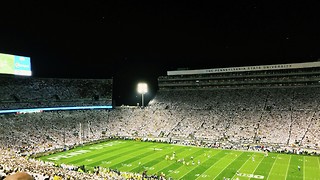Film: Clouds of Sils Maria
The performances stand out in this otherwise uneven film, writes Millie Foy

Clouds of Sils Maria, directed by Olivier Assayas, follows the story of actress Maria Enders (Juliette Binoche) as she prepares to take on the role of Helena, a businesswoman destroyed by her love for her tempestuous, young and manipulative assistant. Her director insists that, as Maria played the assistant in the debut of the play twenty years ago, only she can play Helena, an interpretation Maria initially rejects and continually struggles with. Her contempt for her weak-willed and, to her, pathetic new role casts a negative light on her own life.
Regardless of the quality of the film itself, it is certainly mis-sold to us in the trailer, which implies that scenes enacted between Binoche and Stewart are the interactions between Maria and Valentine, Maria’s personal assistant. In fact, most of this material is taken from scenes of the play that Valentine is helping Maria rehearse. It is disappointing, as the blurring of reality and fiction is the film’s most interesting feature and it’s a shame to have the ambiguity of their relationship overshadowed by the expectations set up by the trailer.
It is certainly an unusual study break to indulge in this term. There seems to be an anxiety of intelligence on Assayas’ part that initiates a kind of struggle between his film and the audience. For on the one hand we feel that the film is too ‘clever’ for us to fully understand, and hence that it’s beauty and entertainment lies in its slightly elusive quality, in our being lost in the filigree of the rolling clouds that showcase the film’s best cinematography. Yet sometimes we feel that we are too clever for the film, that all the continually meta chat, actors playing actors and discussing acting, seems somewhat heavy-handed in its dense saturation and even a little patronising. We get the parallel between Helena and Sigrid, and Maria and Valentine. Somewhat annoyingly, the first act of the film is dedicated to making sure we know to compare the two sets of relationships and that “it’s going to get complicated”. The film analyses itself before it begins, which feels self-indulgent.
Consequently, the best lines and laughs are when the characters feel a little self conscious of their own aspirations toward profundity. There is a lovely moment when Kristen Stewart’s character, Valentine, swears in frustration as she repeats back to herself her remark ‘cruelty is cool, suffering sucks’. Occurring after Maria has left the room it breaks the fourth wall in the right way - as if Valentine is cursing herself for fluffing her lines. In a film largely concerned with acting and seeming professional, it is very touching.
It is, however, worth going for Binoche’s performance alone. ‘La Binoche’ delivers her part with the charming vitality we have come to expect from her, though here made more vital still by Kristen Stewart’s equally commendable performance. The two women dominate the film. The uneasiness of the power dynamic between them, continually inverted, refracted and reexamined in the interaction and discussion of the roles they rehearse together for the play-within-the-film, is mesmerising, twisting and turning like the clouds of the Maloja Snake, the phenomenon that gives the film its title.
Clouds of Sils Maria is currently showing in cinemas across Cambridge and the UK.
 News / Uni welcomes new students14 August 2025
News / Uni welcomes new students14 August 2025 News / Trinity sells O2 Arena lease for £90m12 August 2025
News / Trinity sells O2 Arena lease for £90m12 August 2025 Features / The community Cambridge accommodation creates (and doesn’t)9 August 2025
Features / The community Cambridge accommodation creates (and doesn’t)9 August 2025 News / Locals urge University to fund River Cam repairs16 August 2025
News / Locals urge University to fund River Cam repairs16 August 2025 Features / Incoming freshers and their hopes, fears and expectations for Cambridge 12 August 2025
Features / Incoming freshers and their hopes, fears and expectations for Cambridge 12 August 2025









